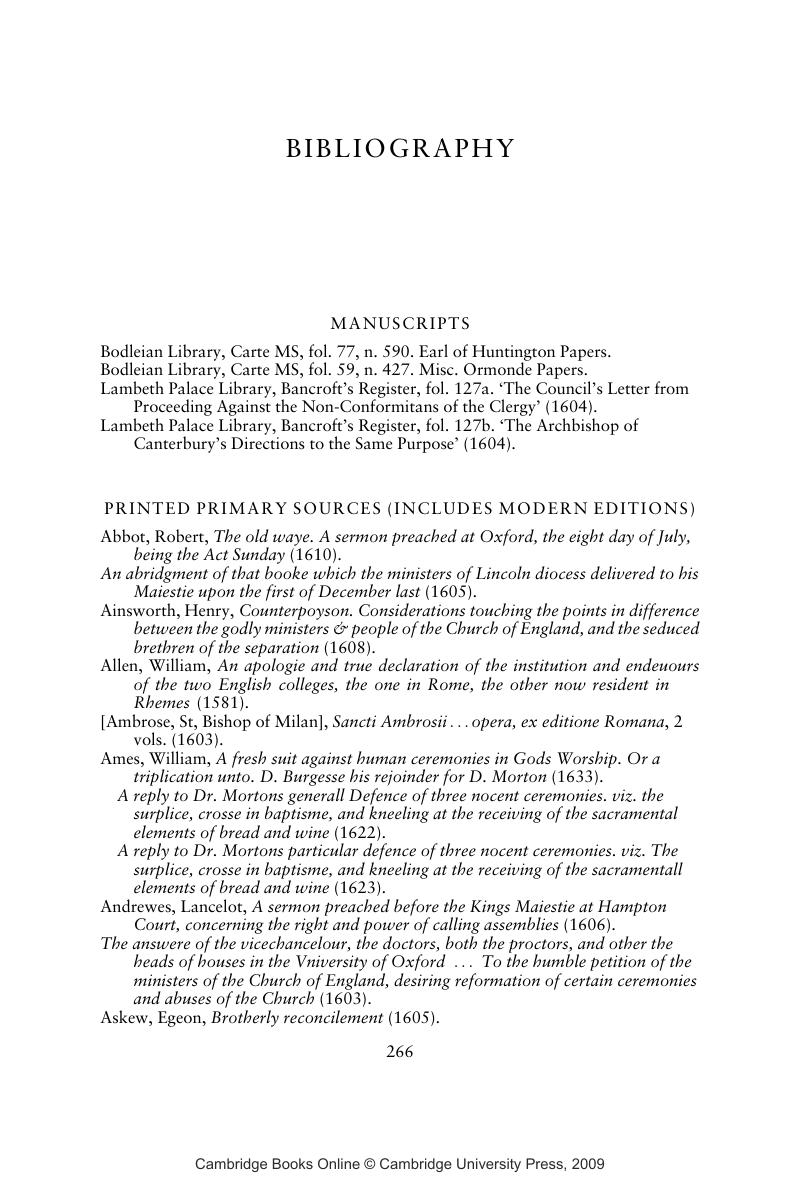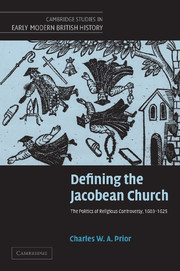Book contents
- Frontmatter
- Contents
- Acknowledgements
- Note on the text
- 1 Introduction: defining the Church
- 2 The language of ecclesiastical polity and Jacobean conformist thought
- 3 Doctrine, law, and conflict over the Canons of 1604
- 4 Apostoli, episcopi, divini?: models of ecclesiastical governance
- 5 Bellum ceremoniale: scripture, custom, and ceremonial practice
- 6 Ceremonies, episcopacy, and the Scottish Kirk
- 7 Conclusion: narratives of civil and ecclesiastical authority
- Bibliography
- Index
- Titles in the series
- References
Bibliography
Published online by Cambridge University Press: 09 July 2009
- Frontmatter
- Contents
- Acknowledgements
- Note on the text
- 1 Introduction: defining the Church
- 2 The language of ecclesiastical polity and Jacobean conformist thought
- 3 Doctrine, law, and conflict over the Canons of 1604
- 4 Apostoli, episcopi, divini?: models of ecclesiastical governance
- 5 Bellum ceremoniale: scripture, custom, and ceremonial practice
- 6 Ceremonies, episcopacy, and the Scottish Kirk
- 7 Conclusion: narratives of civil and ecclesiastical authority
- Bibliography
- Index
- Titles in the series
- References
Summary

- Type
- Chapter
- Information
- Defining the Jacobean ChurchThe Politics of Religious Controversy, 1603–1625, pp. 266 - 285Publisher: Cambridge University PressPrint publication year: 2005

